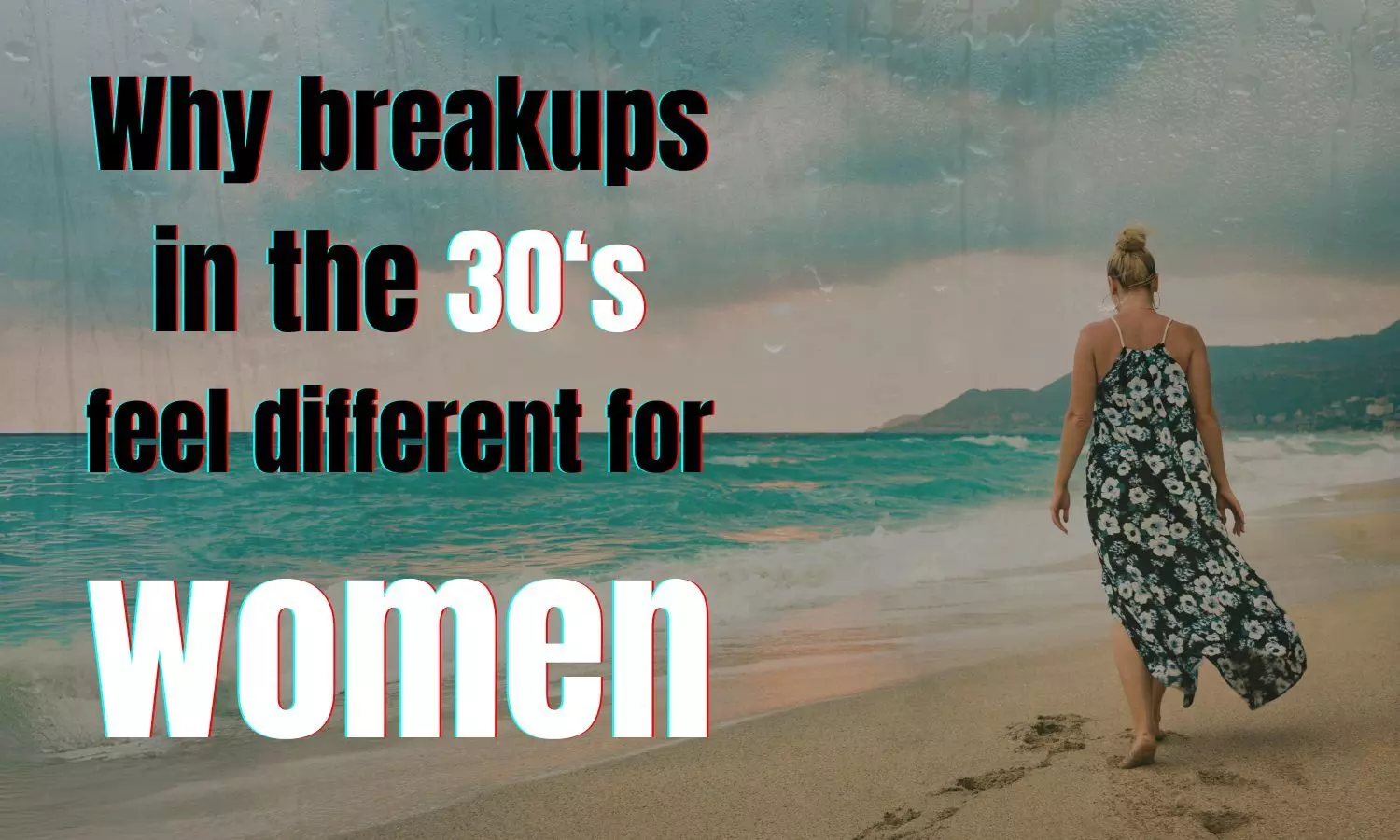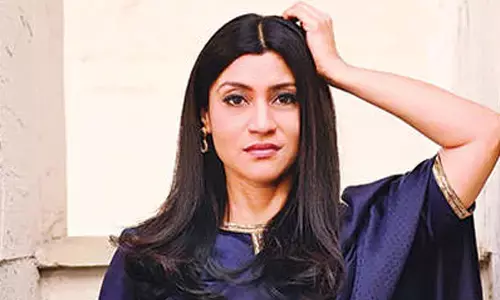Why breakups in 30s feel different for women?

Why breakups in 30s feel different for women?
Learn why breakups in their 30s are uniquely challenging for women and how emotional, societal, and personal factors impact their healing.
Breakups are hard for all women, but they can be even harder when they are in their 30s. Psychologists observe that this grief (for women in their 30s) is complex as it entwines emotional distress from the breakup with deep-seated anxieties about what lies ahead. The combination of these factors can create a particularly daunting emotional landscape, where navigating loss is compounded by concerns about the future, adding layers to the process of healing and moving forward.
Why breakups in the 30s feel different?
For women in their 30s, breakups can be particularly devastating due to the convergence of biological, social, and personal timelines. Neha Cadabam, a senior psychologist and executive director at Cadabam Hospitals, observes that women in this age group frequently experience significant emotional distress following a breakup, including feelings of sadness, loss, and an existential crisis. Celebrity psychologist Raashi Gurnaani adds that, unlike younger individuals, women in their 30s typically have a clearer sense of their life goals, making the loss of a relationship feel especially profound. This clarity can lead them to reevaluate their identity, career goals, and future plans, intensifying the emotional impact of the breakup.
Living up to societal and cultural expectations
As women enter their 30s, they often face societal pressure to establish long-term relationships and start families. Sanghamitra Chandra, a PR professional, shared that after her breakup. She felt she "couldn’t tell anyone what I was going through." She had to hide her grief from her family and felt trapped in a cycle of pain.
The grief from a breakup goes beyond just the end of a relationship. It can trigger fears about running out of time to meet societal milestones like marriage and children. On top of this emotional stress, there is the daunting task of finding another partner. Starting new conversations and getting to know someone new can be overwhelming. Mental health and relationship expert Aashmeen Munjaal notes that women in their 30s often face pressure to settle down and start families. This can create an urgency to find a new partner quickly after a breakup, instead of taking the necessary time to heal and reflect on what they truly want in a relationship.
Anuradha Gupta from Vows For Eternity points out that there might be an underlying sense of urgency to find a new partner to keep life goals like marriage and children on track. However, it is crucial not to internalise these expectations to the point where they cloud judgement. Rushing into a new relationship out of fear of being "left behind" can lead to settling for incompatible partners.
Life coach Varinder Manchanda adds that some communities or individuals might unintentionally hinder the grieving process by imposing unrealistic expectations or stigmatising the idea of taking time to move on. This can further isolate women and delay their emotional recovery.
Navigating these pressures involves balancing societal expectations with personal needs for emotional healing. Women should prioritise self-care, seek supportive relationships, and allow themselves the time and space to heal at their own pace. This approach helps in making healthier decisions for future relationships and personal well-being.
Challenges in finding new partners
Re-entering the dating scene in their 30s brings unique challenges for women. Many feel their dating pool has shrunk, with potential partners often already in long-term relationships. Aanandita Vaghani, founder and mental health therapist at UnFix Your Feelings, highlights that spontaneous connections tend to diminish at this stage in life, further complicating the search for a new partner.
Moreover, many women find newfound comfort in being alone, making the prospect of opening up to someone new daunting. The shift from simply going with the flow to desiring a meaningful relationship adds another layer of complexity. This combination of higher standards, comfort in solitude, and the desire for deeper connections makes dating in their 30s particularly challenging for women.
Finding strength in their careers
For many women in their 30s, careers play a crucial role in their identity and sense of independence. Aditi Gupta Bhatia, a counselling psychologist, believes that a job can significantly aid in recovery after a breakup by providing a sense of purpose, financial stability, and self-worth. These factors help women rebuild their confidence and resilience. Achieving goals at work can boost their self-esteem and give them a sense of control over their lives.
A 33-year-old business development manager reflected on how her job helped her cope with her breakup. She noted that her career was something she could control when everything else felt uncertain. This control helped her regain a sense of power and stability.
Shifting outlooks on relationships
Breakups in their 30s often prompt women to re-evaluate their relationship priorities and outlooks. This period can be a time of significant personal growth, where they reassess what they want from a partner and a relationship. Love yourself and remember that you are the star of your own life. Don’t let anyone rule over you.
Women starting anew after a breakup in their 30s must contend with cultural expectations while balancing their independence and career aspirations. Acknowledging the voids left by a broken heart, Aanandita Vaghani emphasises finding ways to fill them. “This might entail reaching out to friends and scheduling outings to remedy the absence of a reliable companion. Alternatively, it could involve focusing inward, nurturing oneself, embracing solitude, and rediscovering personal passions.”
Neha Cadabam highlights the importance of balancing career ambitions with personal life. Allocating time for self-care, social activities, and personal interests promotes overall well-being, ensuring that women do not become overly reliant on their careers for their sense of self-worth and happiness. By maintaining this balance, women can navigate the challenges of breakups and continue to thrive, both personally and professionally.









